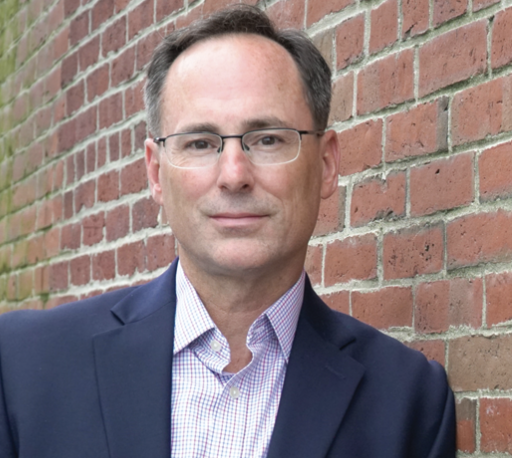This article originally appeared at JBartlett.org.
In the United States and across the globe, a stark political divide has emerged not between left and right, but between outsiders and insiders.
To a large extent, the 2024 election reflects an outsider revolt against elite misuse of institutions. Analysts and writers on both the left and the right have noticed this, though they don’t always read the results the same way.
Left-wing writer Jeet Heer of The Nation headed down the right path, even if he missed the destination, when he wrote last week:
“The key to understanding the Trump era is that the real divide in America is not between left and right but between pro-system and anti-system politics. Pro-system politics is the bipartisan consensus of establishment Democrats and Republicans: It’s the politics of NATO and other military alliances, of trade agreements, and of deference to economists (as when they say that price gouging isn’t the cause of inflation). Trump stands for no fixed ideology but rather a general thumbing of the nose at this consensus. The main fact of American politics in the post-Obama era is that an ever larger majority of Americans are angry at the status quo and open to anti-system politics.”
That’s not quite right. Voters are angry at the status quo, but they have not turned against “systems” per se. No one’s calling to abolish the Catholic Church, the International Committee of the Red Cross, professional sports leagues, the Salvation Army, Rotary International, 10-minute oil changes, community college, municipal trash collection or the International Fertilizer Development Center.
Voters have turned against elite misuse of powerful institutions, particularly government institutions, to exclude non-elites and impose elite values and decisions on others collectively.
The signs of this have been growing for years. Chapman University in California conducts a Survey of American Fears to catalog what Americans fear most. The latest survey from 2022 found that Americans most fear “corrupt government officials.”
Nearly 2/3 of Americans (62%) said they were afraid or very afraid of corrupt government officials. Another 25.4% said they were slightly afraid. Only 12.5% said they had no fear of corrupt government officials. While 37% said they were very afraid of corrupt government officials, only 16% were very afraid of climate change affecting where they live. (Just 6% were afraid of zombies.)
If Americans most fear abuse at the hands of government officials, imagine how concerned residents of the “live free or die” state must be.
Collapsing trust in elites and powerful institutions leads to populist efforts to weaken or control (or both) those institutions.
That loss of trust is a terrible development. But new leaders can restore trust lost by previous leaders. The new governing majority in New Hampshire has a golden opportunity to begin to restore that trust.
How? The wrong way would be to use government power to lock in a different set of controls that create different sets of insiders and outsiders. Voters want to restore the principle of institutional neutrality. They want government to treat everyone equally and stop “picking winners and losers,” as the common phrase goes.
In New Hampshire, policymakers can restore trust by removing institutional rules that create insiders and outsiders where none need exist, or that erect unnecessary barriers that make it harder for outsiders to choose their own path in life.
The best opportunities to return power to individual Granite Staters come with these five steps:
- Reduce state and local land use and development regulations. Our 2021 study of local land use regulations showed that New Hampshire is more heavily regulated in this category than most other states. Regulations that needlessly restrict development are not only the primary cause of the state’s housing shortage, but they prevent developers from creating the kind of communities people prefer, price lower-income families out of neighborhoods and communities, worsen labor shortages, and generally replace individual preferences with choices made by small groups of insiders.
- Increase access to educational options. Nearly everyone agrees that a child’s zip code shouldn’t determine his or her educational opportunity. Our current public education structure locks children in to a boundary-based model that creates insiders and outsiders by its very design. Education Freedom Accounts (EFAs), universal open enrollment and charter schools eliminate that structural flaw. Curiously, news reports on Education Freedom Accounts continue to omit the fact that EFAs can be used to attend public schools. Only by empowering families to shop for an education can we generate the public education improvements parents have demanded for decades.
- Reduce regulatory burdens on businesses and entrepreneurs. Making it harder and more expensive to start and operate a business hurts outsiders and protects larger businesses. New Hampshire has too many state and local regulations that raise barriers to entry, increase costs and create public “protections” that no one even needs. Entrepreneurship is one of the most important paths to prosperity. In New Hampshire, starting and running a business should be easier than anywhere else on earth. Right now, we’re not even close.
- Roll back overly burdensome environmental regulations. Protecting land, water and air is a legitimate role of government. Doing it the wrong way is costly and counterproductive. When regulations become absurdly complicated or expensive, they suppress economic growth, which is harmful because economic growth benefits everyone. New Hampshire can streamline its permitting processes and reduce its regulatory regime in ways that will improve economic outcomes while maintaining essential protections. In this category, renewable energy mandates are entirely unnecessary and should be repealed altogether. Restrictions on building energy infrastructure also need to go.
- Reform occupational licensing. Gov. Sununu and the Legislature made real progress on this in the last legislative session, but much work remains. New Hampshire continues to place too many regulatory obstacles in the way of individuals who want to enter dozens of career pathways.
New Hampshire is layered with rules that replace property rights and individual autonomy with decisions made by small groups of elites. Voters have indicated a strong preference for removing such restraints.
State and local policymakers have a rare opportunity to deliver real reforms that constrain government and empower individuals, rather than the other way around. Failure to deliver such reforms would risk further alienating voters and eroding trust in government.





